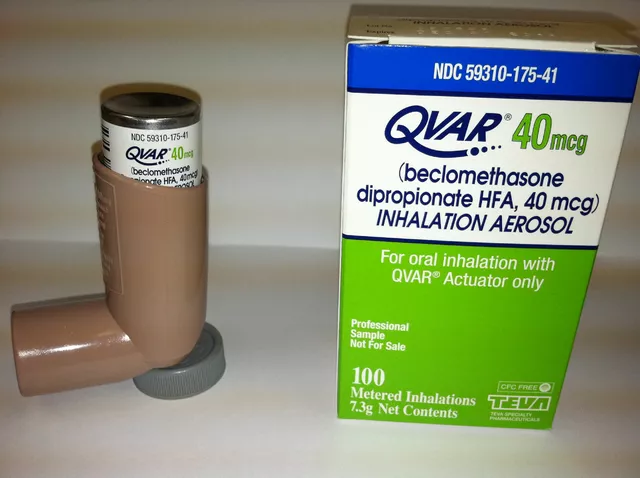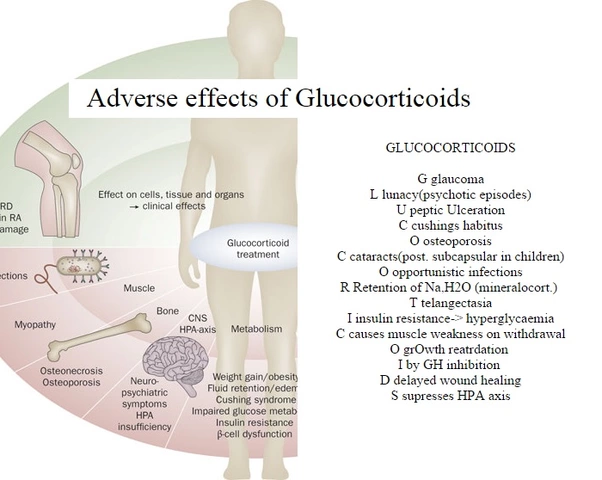Nearly everyone has stared at the ceiling on a restless night, wishing they could press a button and just drift off. Imagine you’ve got a busy morning ahead. You’re tossing and turning, the hours are ticking by, and you remember a little blue box in your medicine cabinet—Unisom. You might wonder, what’s actually inside that tablet? And is reaching for Unisom as simple and safe as it seems?
What Is Unisom and How Does It Work?
Unisom is one of those brands you see everywhere—from pharmacy aisles to TV commercials promising you a peaceful night. But under the brand name, there are actually a few versions, usually either diphenhydramine or doxylamine as the active ingredient. Both are classified as first-generation antihistamines. This means they block the effects of histamine, a natural chemical in the body involved in immune responses. By doing so, they make you sleepy, which is why they’re found in many over-the-counter sleep aids.
Diphenhydramine is the same stuff you find in Benadryl, but when marketed as a sleep aid, it’s simply being used for that drowsy side effect. Doxylamine, on the other hand, is a bit longer-lasting, which is why people say you can still feel groggy after taking it if you don’t get enough sleep hours in. Here’s a quick comparison in a table:
| Ingredient | Brand Example | How Long It Lasts |
|---|---|---|
| Diphenhydramine | Unisom SleepGels | 4–6 hours |
| Doxylamine | Unisom SleepTabs | 6–8 hours |
When you take Unisom, whether it’s in tablet, gel, or liquid form, it usually kicks in within 30 minutes. That’s why directions typically say to take it right before bed. What’s wild, though, is that while it was designed as an allergy medicine, people rely on it now mainly for its sleepy side effect. It doesn’t fix the underlying causes of insomnia, but it can knock out the noise in your brain long enough to catch some Z’s. In the 2020s, it was among the top five OTC sleep aids in the U.S. according to pharmacy sales data from Statista.
When Should You Use Unisom?
Popping a Unisom might sound like a quick fix for a bad night, but there are times it makes sense and times it really doesn’t. The official recommendation is for short-term, occasional use—think jet lag, work stress, or those rare nights you just can’t shut your mind off. It’s not meant for every night, month after month. It doesn’t address chronic insomnia, depression, anxiety, or serious medical issues messing with your sleep.
People who should think twice include anyone 65 or older. The risk of grogginess and falls is way higher. Pregnant women? Unisom with doxylamine is sometimes used with vitamin B6 to combat morning sickness, but always, always check with a doctor first. If you’ve got glaucoma, asthma, or bladder problems, using Unisom could be a bad idea due to its anticholinergic effects.
For the average adult, the key is not to use it nightly. The American Academy of Sleep Medicine says that for persistent sleep trouble, CBT-I (cognitive behavioral therapy for insomnia) beats medication hands down. But for short-term help, Unisom can be clutch—useful for that night before a big test or after a long flight when your body clock is upside down.

Unisom Side Effects and Safety Concerns
With Unisom, the most talked-about side effect is that zombie-like grogginess the next morning, especially if you didn’t clock a solid 8 hours. Antihistamines like diphenhydramine and doxylamine dry up more than sleep—they can leave your mouth parched, your eyes dry, and your bladder a little stubborn. Some folks notice their heart races a bit or they feel jittery, especially older adults.
Long-term use of first-generation antihistamines has been linked to memory problems and confusion, again, mostly in seniors. There’s ongoing debate in the medical world about whether chronic high use might even raise the risk for dementia. That’s not a risk to shrug off if you find yourself reaching for Unisom every single night.
Add to that: never mix Unisom with alcohol or other sedatives. The effect isn’t just an extra punch of sleepiness—you can slow your breathing down, get dangerously drowsy, or put yourself at risk if you need to get up in the night. If you take certain antidepressants, antipsychotic drugs, or even some blood pressure medicines, talk to a doctor before popping Unisom, because drug interactions are real.
| Common Side Effects | Less Common Side Effects |
|---|---|
| Morning grogginess | Fast heart rate |
| Dry mouth or throat | Blurred vision |
| Constipation | Urinary retention |
| Dizziness | Memory loss (long-term use) |
If you ever feel confused, have trouble urinating, notice an irregular heartbeat, or just don’t feel right, stop using Unisom and check in with a healthcare provider. Your health isn’t worth rolling the dice for a few extra hours of sleep.
Helpful Tips: Making the Most Out of Unisom Safely
If you decide to use Unisom, a couple of smart habits can make a big difference. Start with the lowest effective dose; usually, that’s 25 mg of diphenhydramine or doxylamine. More isn’t better—doubling up will only make you more foggy.
- Don’t take Unisom unless you actually have 7–8 hours to sleep.
- Create a wind-down routine before you ever reach for the sleep aid: dim the lights, stash your phone, maybe try a calming tea first.
- Skip caffeine and alcohol—both mess with your body’s sleep factory and can make side effects worse.
- If you wake in the night after taking Unisom, resist the urge to do anything risky (like driving or walking outside).
- Be mindful if you’re stacking medications; check labels for diphenhydramine or doxylamine—you can easily double up by mistake.
- If after a few nights your sleep doesn’t improve, switch strategies; don’t just double down on more Unisom.
- Travel tip: bring Unisom if you’re crossing several time zones to help reset your schedule, but don’t use it every night just because you can.
For lots of folks, a couple of nights with Unisom can break the insomnia cycle, but then you’ve got to shift to habits that support natural sleep: a regular bedtime, keeping your room cool, and minimizing screens an hour before bed. Research from the Sleep Foundation shows these lifestyle tweaks are more effective long-term than any pill on the market.

Alternatives to Unisom: What Else Is Out There?
Before you make Unisom your go-to, it’s worth knowing your other options. There’s melatonin—another huge name in the sleep aisle. It works differently, signaling your brain when it’s time to wind down. Melatonin is especially good for resetting your biological clock after travel. Then there’s valerian root, chamomile, and those fancy magnesium blends that have become TikTok-famous for their calming effects.
Prescription sleeping pills like zolpidem (Ambien) or eszopiclone (Lunesta) pack a punch, but they’re definitely not a band-aid for bad sleep habits. Doctors prescribe them for brief “rescue” periods, and the risk of dependency is real. Then there’s cognitive behavioral therapy for insomnia, or CBT-I, which sleep doctors love. Studies show up to 80% of people see lasting results. No pills, just learning how to change habits and thoughts around sleep.
Supplements like magnesium can sometimes help with sleep, especially if your diet is lacking. Even simple mindfulness apps, or listening to white noise, can shift your brain into sleep mode. If you find nothing works, or you struggle with snoring, restless legs, or depression, it’s time to call in a pro. Insomnia is a symptom, not a standalone diagnosis.
In the end, Unisom is the quick-fix sleep tool—helpful but not a long-term answer. Respect the risks, be smart about when and how you use it, and focus on sleep habits that last longer than the effects of any pill. That’s how you win the war against insomnia, one night at a time.










July 6, 2025 AT 01:36
Brian Bell
Unisom? Been there, done that. Took one before a cross-country flight and woke up feeling like a zombie who lost a fight with a lawnmower. 😅 But hey, at least I slept. Just don’t do it every night - your brain will start thinking it’s on vacation permanently.
July 6, 2025 AT 15:12
Nathan Hsu
Interesting! But, let me point out, please: diphenhydramine is not a sleep drug-it’s an antihistamine, and it’s being misused as a sedative! And, doxylamine? Even more potent! People think it’s harmless because it’s OTC, but, it’s not! The anticholinergic burden is real, especially for the elderly, and, in India, we see way too many cases of urinary retention and confusion from this stuff!
July 7, 2025 AT 10:34
Ashley Durance
Anyone who uses Unisom regularly is just delaying the real problem. You’re not fixing insomnia-you’re chemically suppressing it. And if you’re taking it for jet lag, congrats, you’ve just traded one problem for a 3-day hangover. Also, melatonin is more effective and less toxic. You’re welcome.
July 7, 2025 AT 10:40
Scott Saleska
Hey, I just wanted to say-have you ever checked the labels on your other meds? I once took Unisom and didn’t realize my cold medicine had diphenhydramine too. Ended up in the ER with a racing heart. Just saying… always read the fine print. It’s not just about Unisom-it’s about stacking. And yeah, I know, you’re probably doing it too.
July 7, 2025 AT 15:34
Ryan Anderson
Unisom is the caffeine of sleep aids-everyone uses it, no one talks about the downsides. 🛌💤 I’ve used it twice: once for a flight, once after a breakup. Both times, I woke up feeling like my brain had been rewired with duct tape. CBT-I is the real MVP. No pills, no grogginess, just… better sleep. Trust me, it’s worth the effort.
July 8, 2025 AT 05:42
Eleanora Keene
I’m not a doctor, but I’ve helped dozens of friends with sleep issues. Unisom might help for a night or two, but if you’re relying on it, it’s time to try a bedtime routine. No screens. Warm tea. Journaling. Cool room. 10 minutes of deep breathing. It sounds simple, but it works better than any pill. You’ve got this!
July 9, 2025 AT 16:38
Joe Goodrow
Why are we even talking about this? Back in my day, we just drank warm milk and went to bed. Now we got pills for everything. America’s gone soft. Unisom? More like Unisom-USA-Weakness. Get a grip. Sleep is natural. Stop medicating your laziness.
July 10, 2025 AT 14:30
Don Ablett
The pharmacokinetics of doxylamine suggest a half-life of approximately 10 to 12 hours in healthy adults which may lead to residual sedation even after 8 hours of sleep. The anticholinergic effects are dose-dependent and cumulative. In elderly populations, this may contribute to increased fall risk and cognitive impairment. This is well documented in the Beers Criteria. The utility of OTC antihistamines for sleep is therefore highly questionable in long-term use.
July 10, 2025 AT 16:58
Kevin Wagner
Let’s be real-Unisom is the sleep equivalent of a Band-Aid on a bullet wound. It’s not the answer, but it’s the only thing standing between you and a 3 a.m. panic spiral. I’ve used it when my brain wouldn’t shut off after my kid’s hospital stay. It didn’t fix anything, but it gave me a night of peace. That’s worth something. Just don’t make it your new best friend. Break the cycle. You’re stronger than this.
July 11, 2025 AT 15:37
gent wood
I’ve struggled with insomnia for years, and I can say with certainty that nothing replaced the value of a consistent routine more than CBT-I. No pills, no gimmicks. Just learning how to quiet the mind. It took time, patience, and a lot of trial and error. But the results? Lasting. If you’re reading this and you’re tired of feeling like a ghost the next day-please, give it a shot. You deserve better than a blue tablet.
July 13, 2025 AT 06:13
Dilip Patel
Unisom? Ha! In India we just drink warm turmeric milk and sleep. You Americans always need a pill for everything. Even your sleep is medicalized. Doxylamine? Diphenhydramine? Who even knows what these words mean. Just sleep! Why you make it so hard? Your brain is weak. No wonder you all so tired all the time.
July 14, 2025 AT 06:56
Jane Johnson
Unisom is not a solution. It is a symptom of systemic failure in sleep hygiene education. The fact that it is marketed as a benign, over-the-counter option is a public health concern. The long-term neurological risks are not adequately communicated to consumers. This is negligence disguised as convenience.